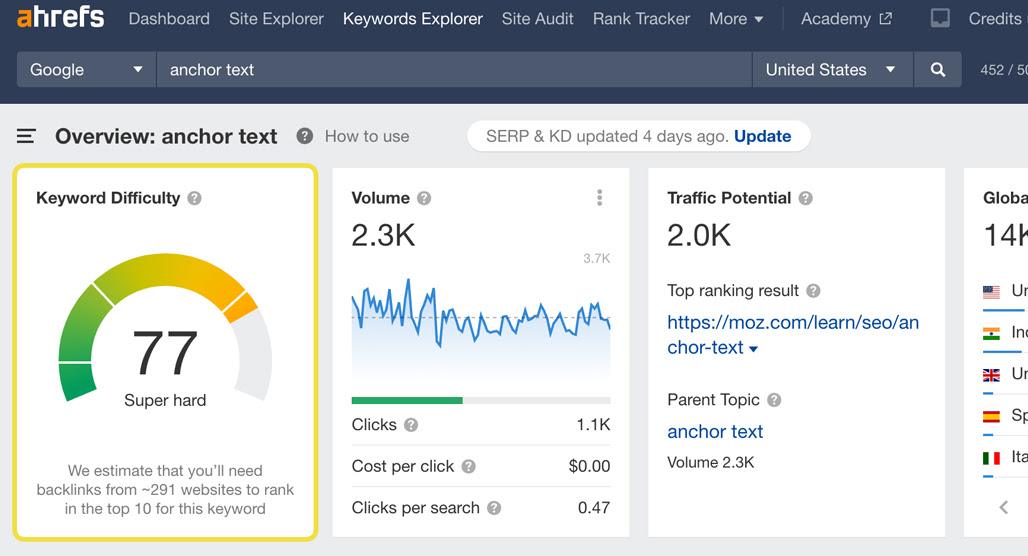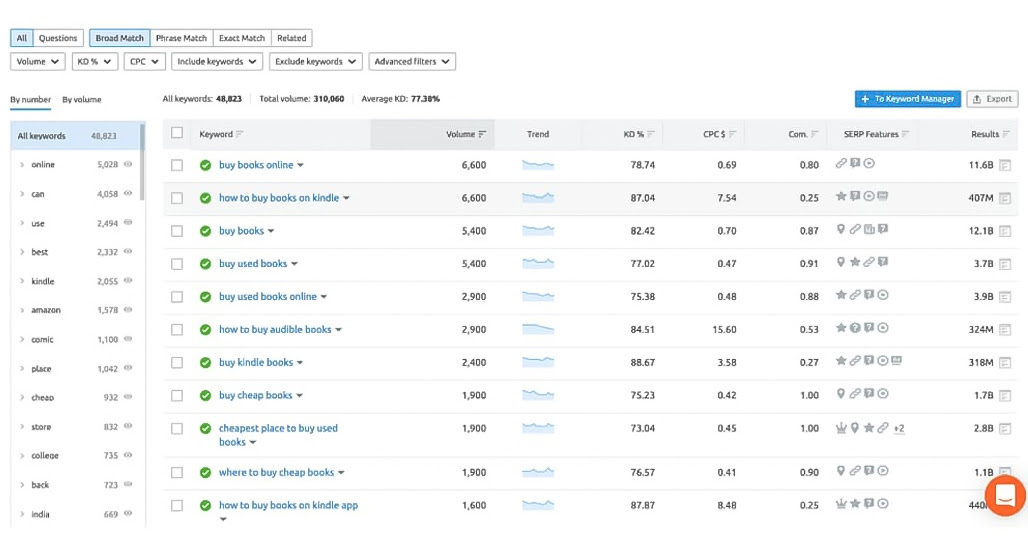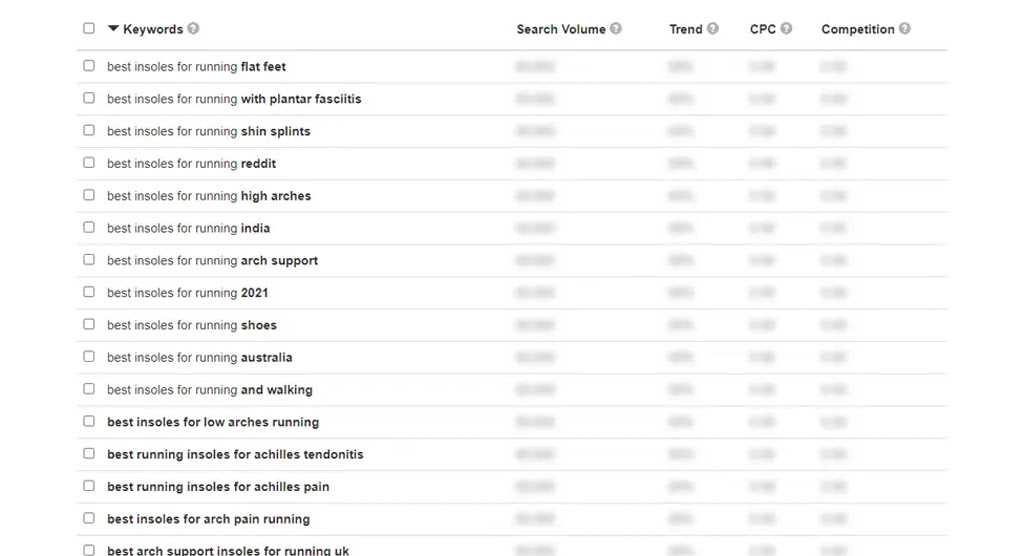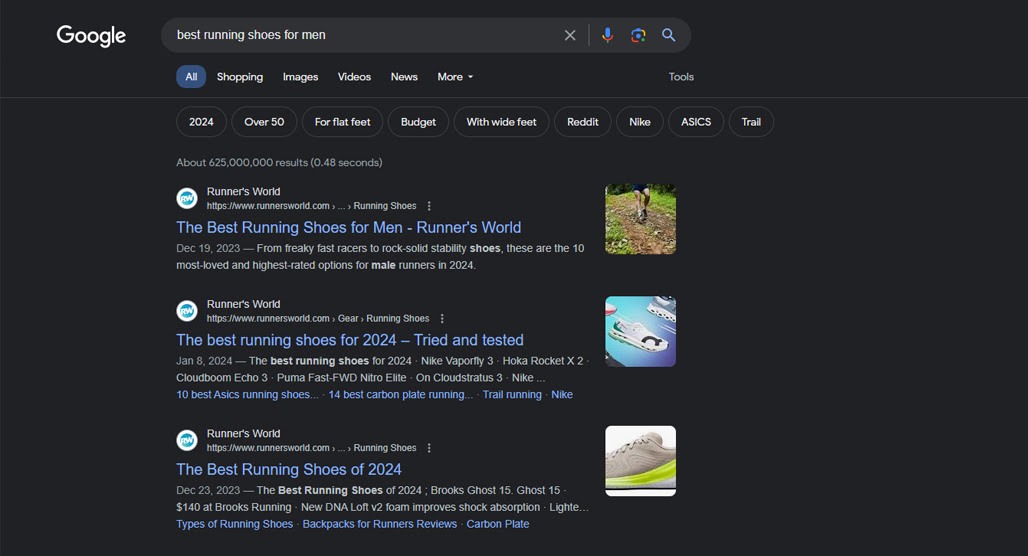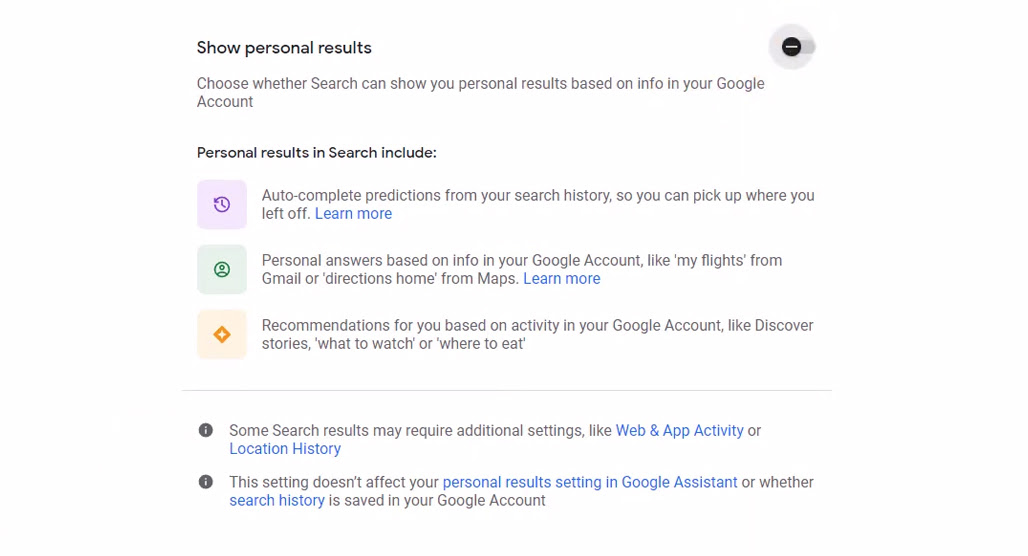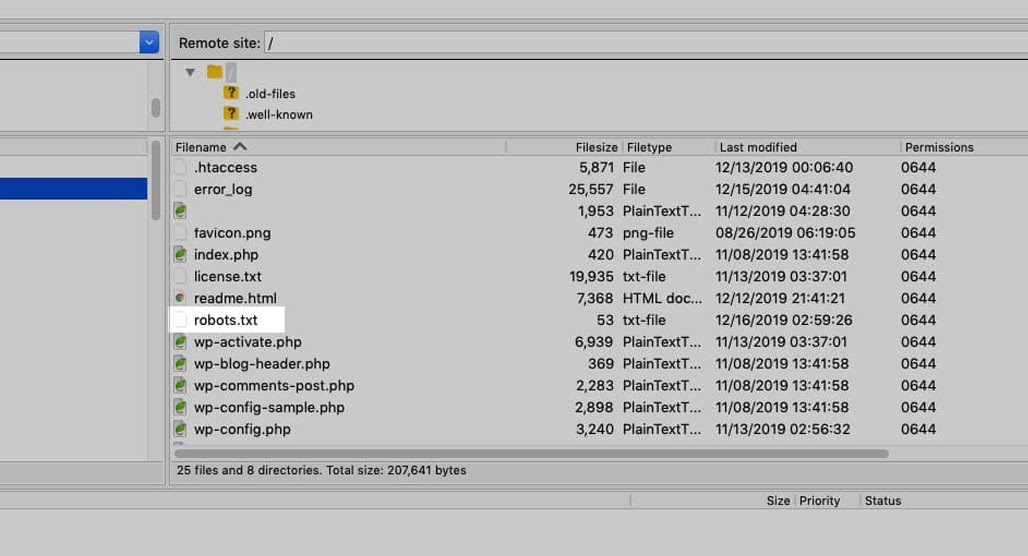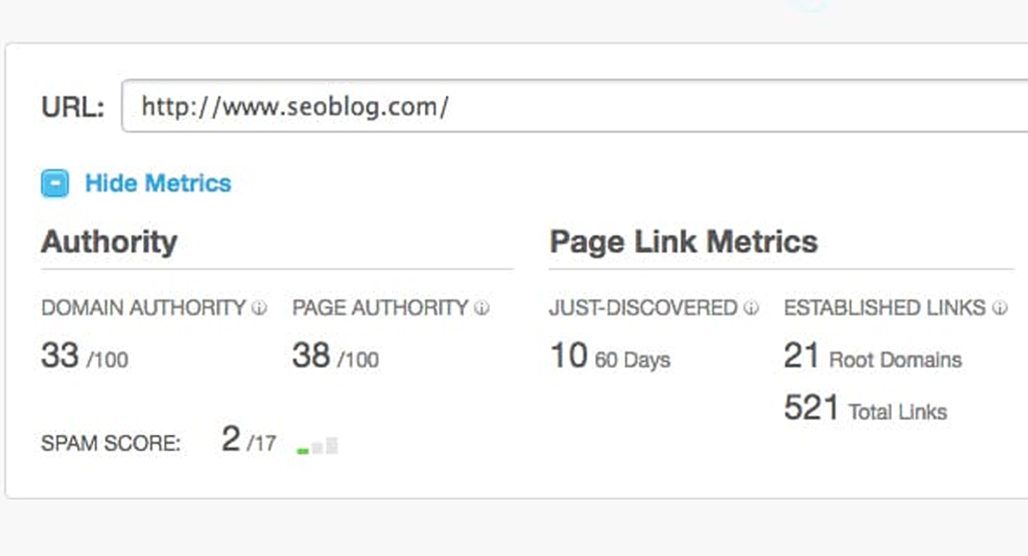4 Reasons Google Won’t Rank Your Page for Your Keyword

Modern marketing, when you aren’t just paying for placement using PPC ads and other direct methods, is all about Google. Despite legions of people feeling like Google is worse than it has been in years, it’s still better than the competition on just about every metric, so it’s always worthwhile to focus on ranking in Google searches.
So, you pick a keyword, you write your content, you publish it, and you wait. Hours, days, weeks later, you check… but where is it? If your content isn’t in the top handful of results (discounting all of the ads, the knowledge graphs, and the mega sites that dominate the top results for everything these days), you may have a problem. Why isn’t your page ranking, and what can you do to fix it?
There are a lot of possible reasons why your content might not be ranking, but in my years as a content marketer, I’ve found four that are more common than the rest.
Let’s cover them here!
Table of Contents
#1: You’re Picking a Losing Battle
Probably the single most common problem I see when someone comes to me and asks why their content isn’t ranking is that they’re trying to fight a battle they have no possible chance of winning.
We like to think of the internet as a land of opportunity. It’s a place where, for just a few dollars, anyone can get a website or an app up and running. There are thousands of rags-to-riches stories of unlikely successes, right-time right-place wonders, and astonishing techniques that capture the attention of millions of people.
What you don’t hear about are the millions upon millions of sites that just never go anywhere. The people who spend money to set up a site, run it for years, and quietly shut it down, having never drawn more than a dozen users in a given month. The sites that labor under penalties and technical issues with no idea what’s wrong. The sites that are just silently abandoned and only still exist because no one canceled the domain registration.
There’s also a “middle class” of websites out there. The websites that may rank here and there but are largely just mediocre, unimpressive, or just young.
Think of it this way. If you take a kid in his first year of high school, and put him on a court with people like LeBron or Shaq or Jordan, he’s going to get dunked on. He’s picking a battle he can’t win. Maybe in another five or ten years, with dedication, practice, and hard work, he’ll be able to run with the big boys, but not so soon.
All too often, I see people start up blogs and businesses and try to take on the keywords that there’s no chance they could possibly rank for. Take a keyword like “best WordPress plugins” as an example. The top ten sites to rank for this keyword are WPBeginner, Reddit, WordPress itself, HubSpot, Hostinger, ThemeIsle, WPForms, Jetpack, Reddit again, and YouTube. Below that set, you have other sites like Neil Patel, Elegant Themes, Tech Radar, Optin Monster, Code Canyon, and even a bunch of repeats of others.
All of these sites are somewhere between huge and gargantuan, and trying to outrank any of them for a generic query is an exercise in futility.
So, what’s the solution? Focus on attainable keywords and topics. Many modern SEO and keyword research tools have accompanying “keyword difficulty” options, which can make it easy to see which keywords are simply too difficult for most brands to reach.
Don’t forget those keywords. Save them and keep them in mind for later. Or, produce the content, but don’t get your hopes up. One day, as you grow, you can reach those heights and compete. It just might take a while.
#2: You’re Targeting the Wrong Intent
I harp on search and user intent a lot, and with good reason. Users have a reason why they’re searching for a given keyword. Some keywords which seem like a great option to target end up not being useful because Google isn’t serving the same kind of content you’re producing as a result.
For example, you could write a blog post about bedframes targeting the keyword “bedframes near me.” It’s a great keyword with a focused topic and a clear intent. The trouble is that clear intent also has a specific kind of result attached to it. It’s a commercial, local intent, which means Google is going to preferentially show results relating to nearby local mattress, bedframe, and furniture stores.
If you search for it right now, you’ll notice that Google doesn’t even try to put blogs in the top results; they give you a map with locations of nearby stores. You can scroll for days and never see a blog post because that’s just not the kind of content people are searching for, so it’s not the kind of content Google will serve.
How do you fix this issue? Evaluate your keywords for the intent behind them. Think about what the person searching for that keyword is looking for and how you can fill their needs. More importantly, filter out the keywords that aren’t relevant at all. For example, even if you sell bedframes, the content that will rank for that query is your product pages and only for local users if you’re a local business. Even Amazon isn’t in the top 20 results for that query because it focuses on local options first.
#3: You’re Just Checking One Keyword
Another relatively common reason why content doesn’t rank for your keyword is you’re checking the wrong keyword. The average piece of content is over a thousand words long, and many of those words, using TF-IDF or Natural Language Processing or Semantic Indexing, don’t just count as keywords themselves; they count as conceptual word clouds of relevance.
Many people bemoan the fact that, when you search for a specific term using Google, much of the time you can get pages in your results that don’t even use the keywords you used. Sometimes that’s an irritation, if you were searching for something specific, especially if that something specific has a more common but inaccurate meaning for your needs.
The flip side of that is the sites that write content often rank for a wide range of keywords – hundreds or even thousands of different keywords – and they may not even be keywords you expect.
So, when you write a piece of content targeting one keyword, that’s fine, and checking that keyword can show you how well you’re reaching that specific audience. But it’s worth keeping in mind that there’s a good chance you’re ranking for other keywords as well.
The solution to this is to check what keywords your page is actually ranking for. You can do this easily: go to the Google Search Console. Assuming your site is properly linked up – which it should be if you’re concerned about your rankings at all – click on the Search Results report on the sidebar under Performance. Here, you can click on the Pages tab to see the pages on your site, find the one you want to check, and click it to see the specific metrics for that page. Once that refreshes, click back to the queries tab to see the queries that lead to that page.
If you see keywords that are dramatically different from what you expected, it’s a sign that your content didn’t match the keyword you were targeting. It’s also a sign that, by retooling the content to match those keywords better, you may be able to rank even better.
#4: You’re Checking Too Soon
If, during the course of checking the other reasons why your content isn’t ranking, you notice that you don’t seem to be ranked at all, there’s a chance that you’re just jumping the gun.
Back a few years ago, John Mueller stated that it could take anywhere from a few hours to a few weeks for a new piece of content to be indexed. While this is true, it’s not always true.
What I’ve found is that two things often happen. The first is that sometimes, it can take Google months to index new content, unless there’s some reason for them to streamline the process. They focus a lot on the top sites and index things like new Reddit threads in a matter of minutes, but blogs with great content might take two months before they show up at all.
The second is that sometimes, pages just get stuck. If you go to your Search Console, there’s a section labeled Pages under the Indexing tab. Clicking that, you’ll see your indexed pages, as well as a bunch of pages that are crawled but not indexed for one reason or another.
Now, sometimes, this isn’t bad. Pages that have canonical tags will show up here, and it’s fine that those aren’t indexed. Pages excluded by noindex tags also show up here. The biggest category you want to look into is the “Discovered – not currently indexed” set. These are pages Google knows about but hasn’t crawled yet, and sometimes content can languish there for a very long time. I’ve seen posts from years prior that sit here, never indexed. Why? It’s a mystery.
To solve this, try going through to the most important pages and request indexing. There’s no guarantee this will un-stick the page, but your other alternatives are pursuing link building and other ways of making Google take notice of the content, which – while valid – are harder and more time-consuming.
All of this is to say, if you’re checking to see where your page is ranking and it’s only been published a few days or even just a few weeks, you may be checking too soon. Unless you’re a major site or are known for publishing good content on the daily, you likely don’t get indexation priority.
Other Possible Reasons Your Page Isn’t Ranking
So, those are the four most common reasons why your content isn’t ranking for your keyword. There are plenty of others, so let’s go through some of them in brief.
You’re using personalized search results.
If you’re logged into your Google account, Google will serve personalized results to you.
If they associate you with a brand, they might exclude that site under the assumption that you’re aware of your own website. Try logging out or browsing incognito and see if that changes your results.
There are technical or indexation issues with your content.
There’s always the chance that you’re having problems. A robots.txt file that excludes a subdomain, a faulty sitemap, bad redirects, and manual actions; there’s a whole list of technical reasons why a page might not be indexed. Usually, if this is the case, it’s going to be the case for a large portion of your site, and it’ll be noticeable. Sometimes, though, it’s trickier to figure out.
There’s also the possibility that something related to a plugin or even your CMS is causing problems. For example, I’ve noticed that many people running Wix blogs struggle to have their blogs indexed. There’s no easy solution to this, unfortunately.
Your content just isn’t good enough.
Sometimes, the content is just bad. Sorry, but it happens. Try to be better.
One of the biggest problems with modern Google search is how it seems like there are only a few hundred websites that rank for anything anymore, and a lot of them are sites like Reddit and Quora. It takes a lot of effort to build a site to the point where it gets the scraps of the search results these days, and that means focusing on link building, EAT metrics, technical SEO, core web vitals, and all the rest.
Newer sites, smaller sites, younger sites, and sites run by relative unknowns tend to struggle. There’s no easy solution to this short of buying traffic; you just need to work at it.
You have duplicate or thin content issues.
Duplicate content has a higher bar than many people think, but if your content is too close to existing content, it can be flagged. Thin content is tricky, too, as there are a lot of pretty thin pages ranking these days, but there’s definitely a lot of thin content that doesn’t rank, too. There’s also AI-gen content, which, if you aren’t putting a lot of effort into polishing it, isn’t going to make the cut.
Hopefully, you can find the reason your content isn’t ranking for your chosen keywords, and you can solve the problem. If not, well, maybe you need the services of an expert content marketer, and wouldn’t you know it, I’m available! Just drop me a line and we can chat about it.
Leave a Comment
Fine-tuned for competitive creators
Topicfinder is designed by a content marketing agency that writes hundreds of longform articles every month and competes at the highest level. It’s tailor-built for competitive content teams, marketers, and businesses.
Get Started
